Although granite may well be the first countertop option that comes to mind when contemplating an upgrade to your kitchen or bathroom, you might want to check out some worthy alternatives before making the final decision. With the myriad of choices, the process can feel overwhelming, so let’s take a look at a few options that could be worth considering.
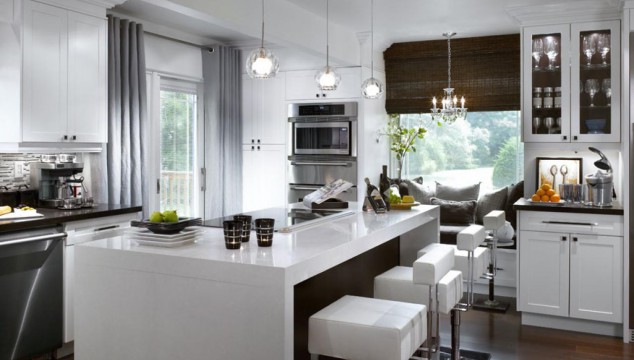
Quartz
Quartz countertops are a composite, combining approximately 90 to 95 percent natural, ground quartz with resin and pigments. This blend makes these countertops virtually nonporous, resistant to staining and scratching, and as strong as most solid stone options.
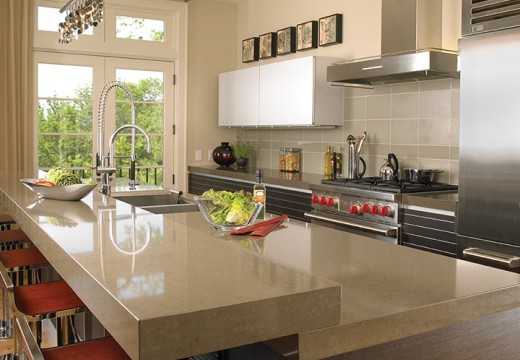
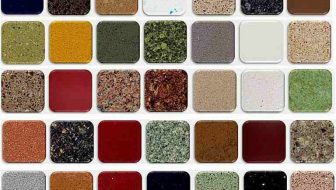
The pigments are varied, offering lots of color choices, and since it’s a manufactured product, the hues and patterns are consistent from piece to piece.
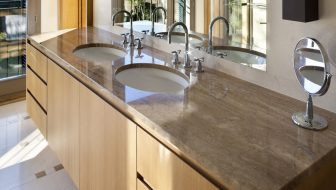
Unlike granite, quartz countertops don’t require routine sealing or waxing, making ongoing upkeep a breeze. Best of all, these countertops wipe clean with simple soap and water, making them a great option for bathrooms where gels, sprays, and makeup routinely coat countertop surfaces.
Soapstone
Soapstone, named for its smooth feel, is a highly dense, naturally occurring stone primarily composed of mineral talc. You might remember seeing it in your high school chemistry classroom, as it’s often used in laboratories due to its resistance to stains, chemicals, and bacteria. Those qualities, along with its inherent resilience to heat, make soapstone an excellent kitchen countertop option.
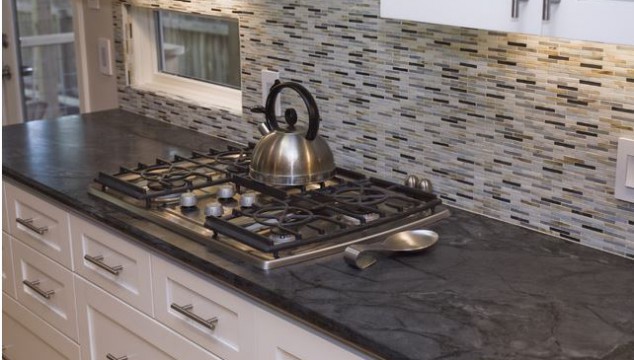
On the positive side, soapstone is highly durable, despite its relative softness. The color choices, however, are fairly limited. Depending on the mineral content, subtle undertones of green or blue might be visible, but soapstone is typically a mid-tone gray in color and naturally ages over time to a charcoal hue.
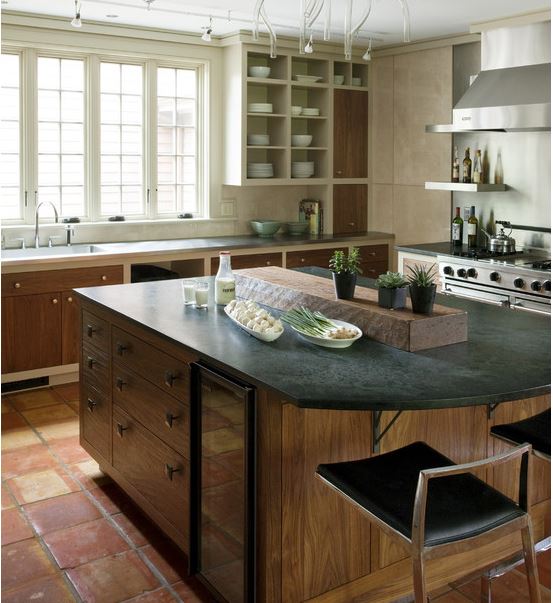
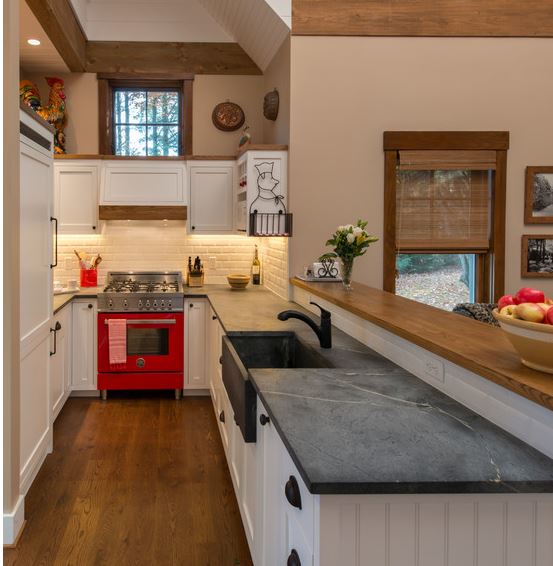
Much like an old leather chair, soapstone tends to develop character and richness with wear and age — a characteristic you might appreciate!
Marble
Marble is a consummate classic that never seems to go out of style. Paired with stainless steel and white cabinetry, it takes on a clean, modern vibe. Mixed with deeper hues and traditional lines, the feel is more refined and timeless. Large marble slabs commonly used in countertop applications emphasize the prominent veining that underscores its enduring style.
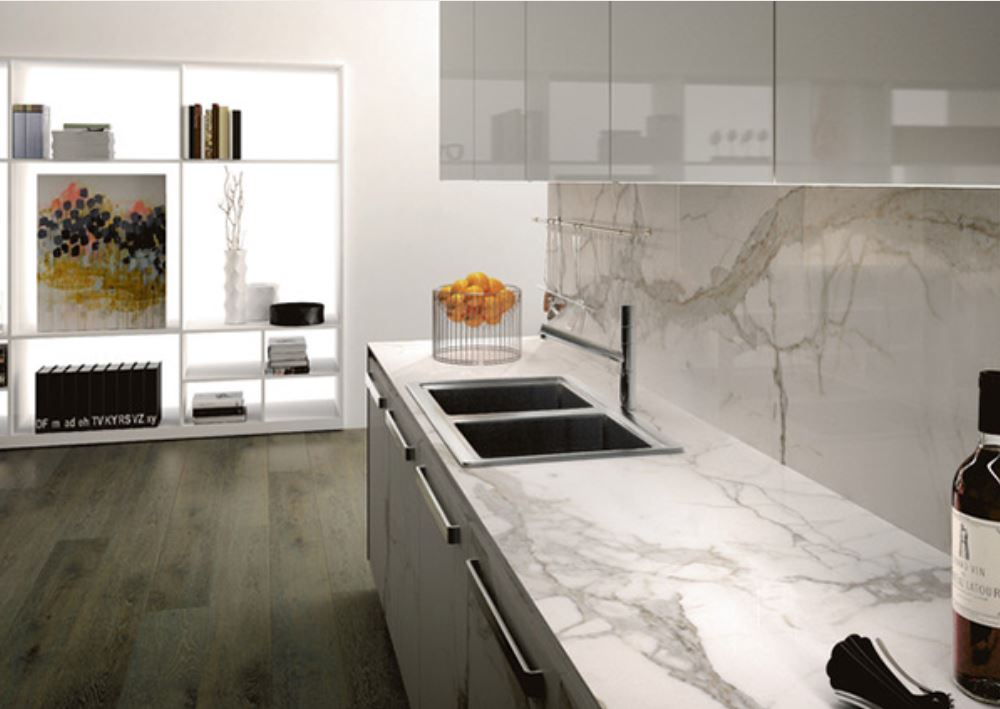
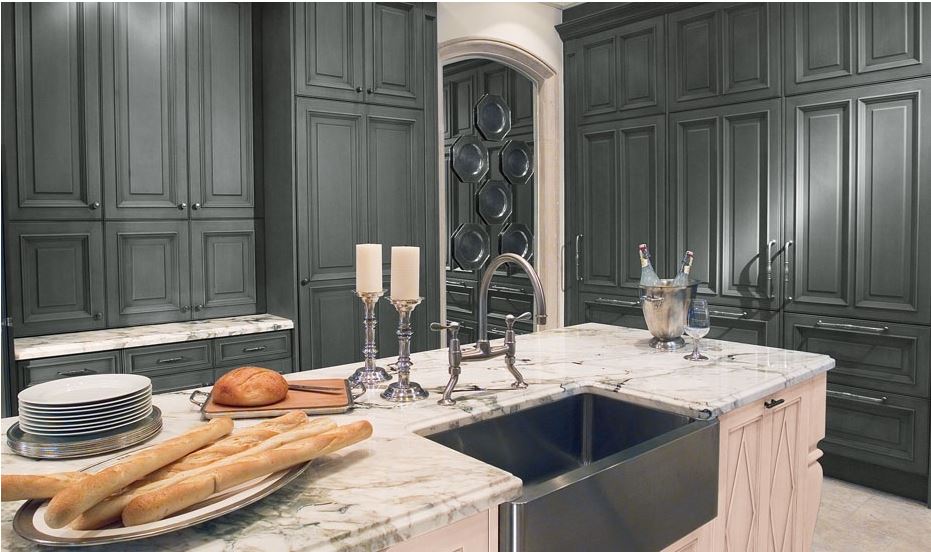
Composed mainly of calcium carbonate, marble is a softer and more porous stone than most, and can be vulnerable to scratches and stains. Additionally, yearly maintenance is required to preserve the look and longevity of the stone. For these reasons, marble may not be the ideal choice for everyone. However, if you’re willing to embrace the care and upkeep, marble is a stunning choice with ageless appeal.
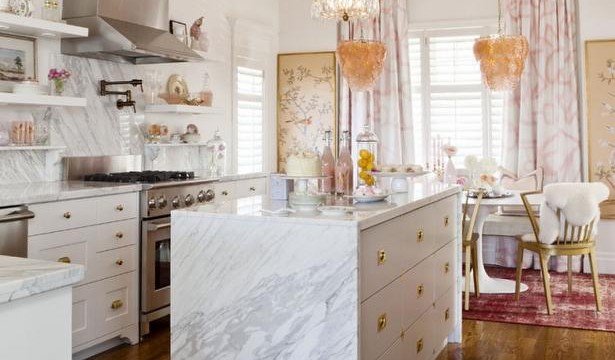
Concrete
When you think about concrete countertops, images of an ultra modern or industrial aesthetic might come to mind. However, this versatile material offers nearly endless options of color, shape, edge style, pattern, and finish, creating a truly custom piece that’s unique to your home.
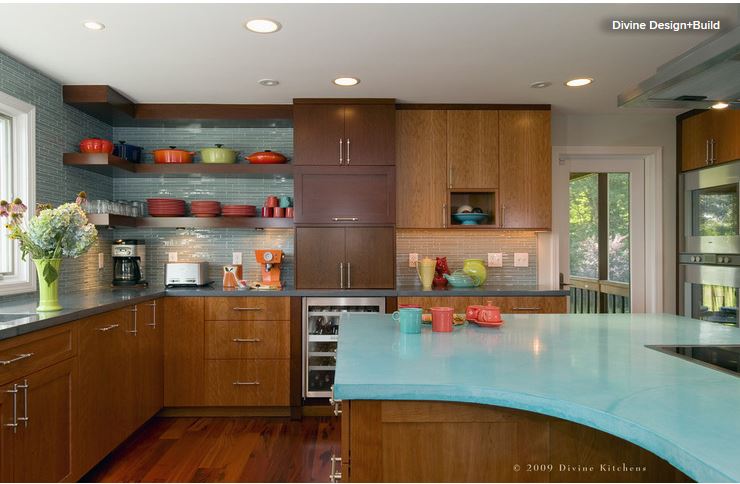
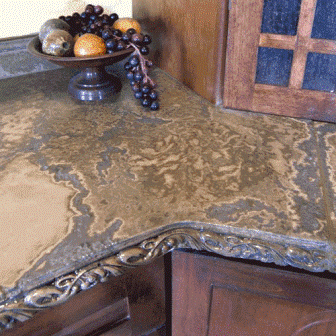
Concrete is obviously durable, but it does require proper sealing to ensure stain resistance. Routine maintenance involves regular cleaning with mild soap and water. Its heat resistant properties along with built in details such as an integrated sink or drain board makes this material a worthy option for the kitchen.
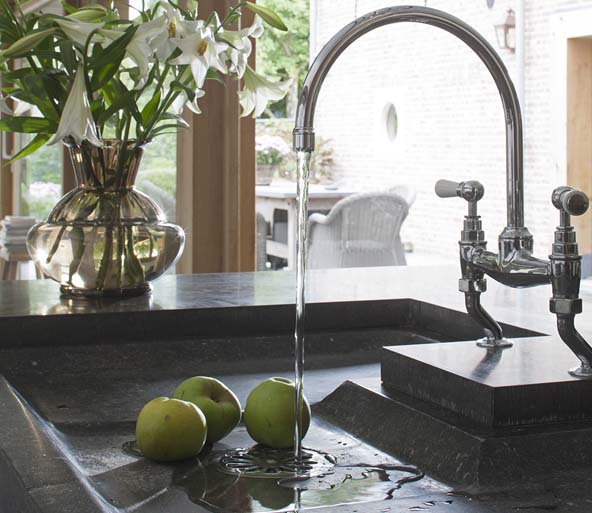
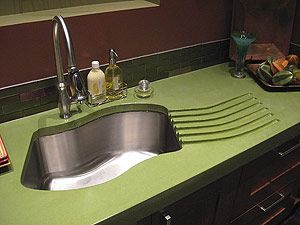
If you’re looking for something that’s versatile, truly distinctive, and hand-crafted just for you, concrete might be worth considering.

